 |
|
 |
 |
 |
 |
 |
 |
 |
 |
 |
 |
 |
 |
 |
 |
 |
 |
 |
 |
 |
 |
 |
THE PEACE AND HARMONY
by TABLE OF CONTENTS
CHAPTER 1 THE NEW WINE No one sews a piece of unshrunk cloth on an old cloak, for the patch pulls away from the cloak, and a worse tear is made. Neither is new wine put into old wineskins; otherwise, the skins burst, and the wine is spilled, and the skins are destroyed; but new wine is put into fresh wineskins, and so both are preserved. Mt 9:16; Mk 2:21; Lk 5:36; Th 47 * Christianity was birthed out of Judaism. Jesus was a Jew with a new vision of humanity and its relationship with God and its relationship with its individual members. These ideas did not fit into the Jewish doctrine, dogma and law of Jesus' day. The above saying is a recognition by Jesus that Judaism would never assimilate his teaching. After the death of Jesus, a new religion began to evolve which had at its core the sayings of Jesus. The nucleus of all that Jesus said was contained in his message of "faith" and his two commandments of "love God" and "love your neighbor". The new wine of these teachings needed the new wineskin of Christianity to contain it. * Mt: Matthew; Mk: Mark; Lk: Luke; Jn: John; Th: Thomas CHAPTER 2 THE CALL TO PEACE Take my yoke upon you, and learn from me; for I am gentle and humble in heart, and you will find rest for your souls. For my yoke is easy, and my burden is light. Mt 11:29; Th 90 Everyone then who hears these words of mine and acts on them will be like a wise man who built his house on rock. The rain fell, the floods came, and the winds blew and beat on that house, but it did not fall, because it had been founded on rock. And every one who hears these words of mine and does not act on them will be like a foolish man who built his house on sand. The rain fell, and the floods came, and the winds blew and beat against that house, and it fell and great was its fall! Mt 7:24; Lk 6:47 The first saying was Jesus' call to humanity to embrace his teachings. What is this yoke that will give one rest? It is the yoke of love and faith. When you remember how to love, you will forgive others their hurtful acts and you will put away the heavy burden of judging others as well as judging yourself. When you have faith that all your needs will be taken care of, you will stop wasting time and energy worrying about the basic needs of life. When you begin to live a life of love and faith you will without question live a life of peace and harmony. The second saying is simply a metaphor about building one's life on a foundation of peace and harmony. CHAPTER 3 - 10 THE MESSAGE OF PEACE Love your neighbor as yourself. Mt 22:39; Mk 12:31; Lk 10:27; Th 25 Love your enemies. Mt 5:44; Lk 6:27 These two sayings regarding love are the bedrock of Jesus' teachings. Love is the mother of peace, love is the essence of peace, love is peace and within love is contained the potential of Peace on Earth. Love your neighbor as yourself requires a definition of who is our neighbor. In contemporary society, everyone on the planet is our neighbor. The word neighbor incorporates the word enemy. It is easy to love your neighbor who is your friend and even to love those who you do not know. It is another matter to love your enemy. Jesus charged us to love our enemies because he knew that if we did not love everyone there could never be Peace on Earth. All of humanity is one. We are all immortal, infinite children of an immortal, infinite God. When we remember our immortality and acknowledge the infinite spirit which resides within each and every human being, we can begin to love everyone. CHAPTER 4 In everything, do to others as you would have them do to you. Mt 7:12; Lk 6:31; Th 6 This saying is known as the Golden Rule and is a less demanding teaching than "love your neighbor". If you find it impossible to love your neighbor, then you can treat him or her the way you desire to be treated. If each of us keep this rule in mind when we interact with each other, surely peace and harmony will permeate all of society. CHAPTER 5 Who is my mother, and who are my brothers?...Whoever does the will of my Father in heaven is my brother and sister and mother. Mt 12:48; Mk 3:35; Lk 8:21; Th 99 But many who are first will be last, and the last will be first. Mt 19:30; Mk 10:31; Lk 13:30; Th 4 But whoever wishes to be great among you must be your servant, and whoever wishes to be first among you must be your slave; just as the Son of Man came not to be served but to serve. Mt 20:26; Mk 10:43 In the first saying, we must acknowledge that the word Father is a metaphor for God who is neither father nor mother but an everlasting all-knowing essence. Also, it is not a matter of doing the will of God as much as it is a matter of remembering our oneness with God and our oneness with all of humanity. When we remember our oneness and that we are all immortal, infinite beings temporarily residing in this reality, we remember that everyone is our brother, sister and mother. The first becoming the last and the last becoming the first and the great becoming the servant and the first becoming a slave are references to our earthly stations. On the spiritual plain we are all immortal, infinite children of equal birth. Jesus is saying that we need to remember that regardless of our station in this life we will soon return to the spirit reality where we will remember our oneness with all beings. In the last two sayings, Jesus is reminding us that we are sometimes masters and sometimes servants. If we keep reminding ourselves that our station in this life is only temporary and one that we have created for ourselves, we will stay focused on our immortality and live within the peace and harmony that is the essence of God. CHAPTER 6 'Lord, if another member of the church sins against me, how often should I forgive? As many as seven times?' Jesus said to him, 'Not seven times, but, I tell you, seventy-seven times.' Mt 18:21; Lk 17:4 But if anyone strikes you on the right cheek, turn the other also; and if any one wants to sue you and take your coat, give your cloak as well; and if any one forces you to go one mile, go also the second mile. Give to everyone who begs from you, and do not refuse anyone who wants to borrow from you. Mt 5:39; Lk 6:29 How does one begin to love others? One begins to love others when one forgives every single act that can be perceived as detrimental to one's well being. When we realize that we are at one with all of humanity and that we are all immortal, infinite beings, we remember that our life in this reality is less than an instant and any act which impacts upon us is truly insignificant. If Peace on Earth is to ever manifest, we must love each other and if we in fact love each other, we will forgive everyone their every act. The second saying is an example of how we can demonstrate that we have no negative feelings toward those who do hurtful things to us. These examples are unquestionably extreme examples of the acts of a totally passive person. For all but a few of us, living this kind of passivity is impossible. We generally feel a need for retribution for what we consider anti-social acts. It is important here to make a distinction between forgiveness and condoning anti-social acts. We can forgive someone their hurtful acts but at the same time insist that they conform to acceptable social behavior. Forgiveness does not mean that we must constantly expose ourselves to others who hurt us. There are without question those who intentionally hurt others. If the hurt is severe enough, there are social laws to help deter those hurtful actions. Forgiving someone does not mean that they should not be held accountable for their anti-social acts. Forgiveness is a facet of love but acts of forgiveness are not meant to create anarchy in society. Saying a hurtful word to someone can be forgiven and no social punishment need be imposed upon the transgressor. It can be overlooked due to its insignificance and its infrequent occurrence. However, murder cannot go unpunished. If someone has so little regard for life that they take a life, then society has the obligation to protect its members from such people. A murderer should be forgiven but at the same time it is necessary for that person to be removed from society until he or she can demonstrate an intent to live within the laws of the society to which he or she belongs. CHAPTER 7 Do not judge, so that you may not be judged. For with the judgment you make you will be judged, and the measure you give will be the measure you get. Mt 7:1; Lk 6:37 Why do you see the speck in your neighbor's eye, but do not notice the log in your own eye? ...first take the log out of your own eye, and then you will see clearly to take the speck out of your neighbor's eye. Mt 7:3; Lk 6:41; Th 26 We are each unique individuals due to our genetic makeup and we are each unique individuals due to our unique experiences in this lifetime. In addition, we are moment to moment in unique situations in which we react as a whole person. In other words, at every moment we are reacting to a changing environment by applying our unique genetic makeup and our life experiences. There are truly no two individuals who at any moment in time have the exact same genetic makeup and the exact same life experiences. When we consider our uniqueness, we realize that judging others is a ridiculous endeavor. It is impossible to judge anyone regarding anything. We are each doing the best we can and no one has the ability or the right to sit in judgment on anyone else. When we love someone, we tolerate and forgive their acts and consequently refrain from judging them. We cannot successfully judge others because our judgment will always be from our unique personal perspective and consequently invalid if applied to anyone else. No one is perfect. We, as individuals, may act in a positive, loving manner in any one particular situation but it is doubtful that we act in a positive, loving manner in all situations. If we were to attempt to judge someone, we would have to take into consideration the whole person, his or her whole life, every single act and word; an impossibility. We cannot begin to judge a person based on one particular act much less judge his or her entire existence and value as a human being. When we attempt to judge others, we forget our oneness. We forget that we are all immortal, infinite beings and that we are only residing for an instant in this reality. When we judge others, we separate ourselves from the rest of humanity and wrongly believe that we are better or worse than everyone else. We cannot love and judge. Love and judgment are mutually exclusive. If you love, you do not judge and if you judge, you do not love. As with forgiveness, refusing to judge others is not to be confused with judgment as it relates to the consequences of breaking the laws of society. In order to have an orderly society, the members of that society continuously enact laws that define acceptable behavior within their society. If someone breaks a law, then he or she will be punished. This is necessary to avoid social anarchy. We cannot judge others as being innately good or bad but we can determine whether or not they have broken one of the laws of our society. If a person breaks a law, he or she is not necessarily a bad person. He or she has simply broken a law of society. Jesus, as we shall see later, taught us to obey the laws of society while at the same time he taught us not to judge each other. In the above sayings, Jesus was speaking of not judging the goodness or badness of a person based on their acts. Goodness and badness have nothing to do with abiding by the social law. Good and bad have to do with judging a person's immortal, infinite soul. If we break a social law, we are criminals but just because we are criminals does not necessarily mean that we are bad. There is a difference between the physical and spiritual realities. Each has its own parameters and rules and those parameters and rules do not necessarily apply one to the other. In truth, it is impossible for an immortal, infinite being to be either good or bad. One's immortal, infinite nature by definition includes all the good and bad that exists. A human being can be considered a criminal due to his or her anti-social acts in this reality, but his or her immortal, infinite being cannot be considered as being bad simply based on a particular act in this reality, criminal or otherwise. CHAPTER 8 Ask, and it will be given you. Mt 7:7; Mk 11:24; Lk 11:9; Jn 16:24 Search, and you will find. Mt 7:7; Lk 11:9; Th 92, 94 Knock, and the door will be opened for you. Mt 7:7; Lk 11:9; Th 94 If you have faith the size of a mustard seed, you will say to this mountain, 'Move from here to there,' and it will move; and nothing will be impossible for you. Mt 17:20; Lk 17:6 Even if you say to this mountain, 'Be lifted up and thrown into the sea,' it will be done. Whatever you ask for in prayer with faith, you will receive. Mt 21:21; Mk 11:23; Th; 48, 106 Nothing is covered up that will not be uncovered, and nothing secret that will not become known. Mt 10:26; Mk 4:22; Lk 8:17; Th 5,6 Therefore do not worry, saying, 'What will we eat?' or 'What will we drink?' or 'What will we wear?' Mt 6:31; Lk 12:22; Th 36 When they hand you over, do not worry about how you are to speak or what you are to say; for what you are to say will be given to you at that time. Mt 10:19; Mk 13:11; Lk 12:11 Foxes have holes, and birds of the air have nests; but the Son of Man has nowhere to lay his head. Mt 8:20; Lk 9:58; Th 86 When we categorize Jesus' sayings by subject, we find that the subject of Faith was given a lot of emphasis. There can be little doubt that Jesus was trying to make a very strong statement regarding faith. The message regarding faith seems to be that we create our own reality. If we can truly ask and receive, search and find, knock and enter, then all that we experience in this reality is of our own choosing or our lack of choosing. If that is so, then we must ask, "Why do we seem to experience so many negative things? Why are we not always happy?" As simple as it seems, we apparently are not happy because we have not asked to be happy nor have we searched for happiness. Apparently, if we do not ask for things or we do not search for them, then we get whatever comes randomly to us. If one has faith, Jesus says that all questions will be answered, all things hidden will be revealed, all our needs will be provided for, we will know what to say at any particular moment and we will flow with life in peace and harmony. In the last saying above, when Jesus says he has no place to lay his head, he means he has no home. During his ministry, Jesus lived as a wandering sage with no possessions except the clothes on his back and yet all his needs were met. His life was an example of what he taught. He made a statement with his life as well as with his words. When we realize that we create our own destinies in all respects, we become free to truly flow in peace and harmony. We can have peace within ourselves as well as Peace on Earth if peace is what we truly desire and seek. CHAPTER 9 Father, hallowed be your name... Give us each day our daily bread. And forgive us our sins, for we ourselves forgive everyone indebted to us. And do not bring us into temptation. Lk 11:2; Mt 6:9 This is the part of the Lord's Prayer that is contained in at least two of the gospels. It is interesting to note that something that has become the ultimate prayer in Christianity was only partially mentioned in two of the gospels. When one understands that all things are attainable if one asks, then one realizes that all that prayers will be answered. The first words of the Lord's Prayer cannot be taken literally because God is not a Father, nor is She a Mother. God is the spirit that is the immortal, infinite essence of each of us. We are each at one with God and in that sense we are God. These first words need to be taken metaphorically as an acknowledgement of the God within us. It is an address to our immortal, infinite spirit which is at one with the immortal, infinite essence we refer to as God. The last sentence also cannot be taken literally. God does not bring us into temptation, we bring ourselves into temptation. Temptation is a metaphor for our forgetting our oneness with God and our oneness with all of humanity. When we forget our oneness, we begin to separate from the knowledge of the oneness of our immortal, infinite essence and begin to think that this temporary reality in which we presently exist is the true reality. Our immortal, infinite essence is the only true reality. The middle of the Lord's Prayer simply restates Jesus' two messages of love and faith. Give us our daily bread, means satisfy our daily needs, and forgive our debtors asks that we remember how to love and consequently forgive and refuse to judge others. A restatement of the Lord's Prayer could be; "Let us remember our oneness with God, let us love everyone and let us remember that all our needs will be provided for". CHAPTER 10 Heaven and earth will pass away, but my words will not pass away. Mt 24:35; Mk 13:31; Lk 21:33 The words that will never pass away are the words of truth that were as validwhen humanity first walked the earth as they are today. The sayings of Jesus which reflect the truths of love and faith, and the peace and harmony they create, will never pass away. These truths are the very essence of our being, both physical and spiritual, and Jesus reminded us of them. If we will but look inside ourselves, we will find these truths imprinted upon our immortal, infinite being. It is great teachers like Jesus who remind us that our essence is love and that our destiny is our faith. CHAPTER 11 - 15 THE DUAL REALITIES OF HEAVEN AND EARTH The land of a rich man produced abundantly. And he thought to himself, 'What should I do, for I have no place to store my crops?' Then he said, 'I will do this: I will pull down my barns and build larger ones, and there I will store all my grain and my goods. And I will say to my soul, 'Soul, you have ample goods laid up for many years; relax, eat, drink, be merry.' But God said to him, 'You fool! This very night your life is being demanded of you. And the things you have prepared, whose will they be?'. Lk 12:16; Th 63 Do not store up for yourselves treasures on earth, where moth and rust consume and where thieves break in and steal; but store up for yourselves treasures in heaven, where neither moth nor rust consumes and where thieves do not break in and steal. For where your treasure is, there your heart will be also. Mt 6:19; Lk 12:33; Th 76 No one can serve two masters; for a slave will either hate the one and love the other, or be devoted to the one and despise the other. You cannot serve God and wealth. Mt 6:24; Lk 16:13; Th 47 For what will it profit them if they gain the whole world but forfeit their life? Or what will they give in return for their life? Mt 16:26; Mk 8:36; Lk 9:25 Truly I tell to you, it will be hard for a rich person to enter the kingdom of heaven. Mt 19:23; Mk 10:23; Lk 18:24 It is not what goes into the mouth that defiles a person, but it is what comes out of the mouth that defiles. Mt 15:11; Mk 7:14; Th 14 Do you not see that whatever goes in the mouth enters the stomach, and goes out into the sewer? But what comes out of the mouth proceeds from the heart, and this is what defiles. For out of the heart come evil intentions, murder, adultery, fornication, theft, false witness, slander. These are what defile a person, but to eat with unwashed hands does not defile. Mt 15:16; Mk 7:17 For you clean the outside of the cup and of the plate, but inside they are full of greed and self-indulgence. Mt 23:25; Lk 11:39; Th 89 These sayings emphasize the dual reality of humanity. We believe that we possess an immortal, infinite spirit residing within our mortal body. These sayings tell us to focus on our immortality, which is our true essence, and not to delude ourselves into believing that our temporary sojourn in this physical reality is everlasting. When we forget our immortality and our spiritual oneness, we become enmeshed in this reality to the point where we begin to believe that this reality is the true reality and not just an aspect of our immortal, infinite being. Consequently, our actions begin to reflect the primal nature of the earth where the strong generally victimize the weak. When we forget to love and when we lose our faith, we become lost in the materialism of this reality. The first saying reminds us that we are mortal. It reminds us that we are only temporarily residing in this physical reality and at any moment we could die. The second saying reminds us that the experiences that we have in this reality ultimately become a part of our immortal, infinite essence. We should therefore keep this in mind and consider whether our future acts will become a positive aspect of our immortal, infinite being or simply the nonsensical accumulation of earthly possessions that will be left rotting on the earth along with our lifeless bodies. The third saying is contrary to the truth ofour existence in this reality. We all in fact serve many masters. We have a job, a family, a citizenship in a society and generally a religious affiliation. We serve all these masters by participating in them. We also serve a spiritual as well as a physical reality. It is obvious that we serve many masters and that we do not necessarily love only one. Also in this saying, Jesus seems to be saying that we cannot serve God and money. However, later on when he says we must "give to the Emperor what is the Emperor's and to God what is God's", he is very definitely acknowledging that because we live simultaneously in two realities we must simultaneously serve two masters. Consequently, this saying needs to be discarded. Saying four simply reminds us that if we in fact owned the entire physical world it would be taken from us when we pass into the spiritual reality at thetime of our death. The fifth saying indicates that if we mindlessly pursue the materialism of the physical world, we will not be able to completely manifest the peace and harmony of our spiritual essence. The kingdom of heaven refers to our spiritual essence which is the only true reality. The implication of this saying is that rich people who become too much involved in the ways of the physical world are generally unable to flow in the peace and harmony of their immortal, infinite souls. In the sixth and seventh sayings, Jesus is further distinguishing the parameters of the physical reality with those of the spiritual reality. He is sayings that one can eat anything that the earth produces in order to nourish one's body without affecting one's immortal, infinite spirit. The heart is a metaphor for our immortal, infinite essence which resides within us. Metaphorically, what we say comes from the heart. We cannot degrade ourselves by anything that we eat, but we can degrade ourselves by the things we say. The last saying reminds us that our clothes which make us look nice and honorable have nothing to do with our intentions which are concealed under the clothing. A person may look very upright and honorable but one's acts will show his or her true nature. The clothes will eventually rot but one's acts are immortal. CHAPTER 12 You shall love the Lord your God with all your heart, and with all your soul, and with all your mind. This is the greatest and first commandment. Mt 22:37; Mk 12:29; Lk 10:27 Why do you ask me about what is good? There is only one who is good. Mt 19:17; Mk 10:18; Lk 18:19 Do not put the Lord your God to the test. Mt 4:7; Lk 4:12 Worship the Lord your God, and serve only him. Mt 4:10; Lk 4:8 One does not live by bread alone, but by every word that comes from the mouth of God. Mt 4:4; Lk 4:4 These sayings tell us how to relate to God. The problem with the first saying is that it personalizes God and separates Him from us. We are at one with God. We are an immortal, infinite part of an immortal, infinite whole. When we love God, we are loving ourselves and vice versa. The first commandment is to remember that we are immortal, infinite beings who are at one with God and we should love ourselves. In the second saying, Jesus is saying that the only good is God. I would say that the only reality is our immortal essence which is neither good nor bad but infinite in all respects. The admonishment not to test God is senseless. How could we test God? This is another saying whose meaning and point no longer impact on our contemporary society. We are to serve only God. This relates back to our dual nature. It means that we should never forget our oneness with God. We do not in fact live by bread alone. Since our spirit is immortal and infinite we must acknowledge that we are a manifestation of our spiritual essence. Our immortal, infinite spirit is what has brought us into this reality and it is by the will of the our immortal, infinite spirit that we continue to exist in this reality. It is our immortal, infinite essence, which is at one with God, that takes care of our needs. CHAPTER 13 The kingdom of heaven is like treasure hidden in a field, which someone found and hid; then in his joy he goes and sells all that he has and buys that field. Mt 13:44; Th 109 Again, the kingdom of heaven is like a merchant in search of fine pearls; on finding one pearl of great value, he went and sold all that he had and bought it. Mt 13:45; Th 76 Jesus is saying that when you possess love and have faith they will be the most valuable possessions you have. They will be worth everything to you and there will be no comparing them to anything else because they have no equal. Love and faith are the pearls of great price that have the potential to permeate every aspect of one's life with peace and harmony as well as to manifest Peace on Earth. CHAPTER 14 Let the little children come to me, and do not stop them; for it is to such as these that the kingdom of heaven belongs. Mt 19:14; Mk 10:14; Lk 18:16 Truly I tell to you, unless you change and become like children, you will never enter the kingdom of heaven. Mt 18:3; Mk 10:15; Lk 18:17 Children are born loving everyone. It is only as they begin to be impacted by the non-loving words and deeds of others that they learn not to love. Children are also born with complete faith and they only lose their faith as it is taken away from them by the faithless. And children only learn to judge from the self-righteous. Jesus is saying that we must mentally return to our childhood and regain our faith and remember that we are immortal, infinite beings who are at one with God and at one with all of humanity and that we are love, if we are to achieve inner peace and harmony and manifest Peace on Earth. CHAPTER 15 Give therefore to the Emperor the things that are the Emperor's, and to God the things that are God's. Mt 22:21; Mk 12:17; Lk 20:25; Th 100 Jesus very clearly states in this saying that one should abide by the rules of society. Jesus recognizes here that the physical reality in which we live in general and society in specific have parameters that are not the same as those of the spiritual reality. It is important to remember that some laws are unjust and they should be changed by non-violent means. The laws of society change over time as the needs and values of the members of a society change. Abiding by the law does not mean that one should not challenge or try to change the law in a non-violent manner. CHAPTER 16 - 19 SPREADING THE MESSAGE No one after lighting a lamp puts it under the bushel basket, but on the lamp stand, and it gives light to all in the house. Mt 5:15; Mk 4:21; Lk 11:33;8;16; Th 33 A city built on a hill cannot be hid. Mt 5:14; Th 32 When we remember how to love and how to have faith we become beacons of light that impact on others. Through our peace we inspire others to look inside themselves for the peace that also resides in them. No one who has found the peace and harmony of love and faith can hide it; nor would they want to. When one has truly achieved peace and harmony, one automatically begins to share it with everyone. When one has achieved peace and harmony, it affects every human being one comes into contact with. The light of peace cannot be hidden. It is the love of humanity that gives us the desire to give our light to others and our faith which assures us that Peace on Earth is possible. CHAPTER 17 The Parable of the Sower A sower went out to sow. And as he sowed, some seeds fell on the path, and the birds came and ate them up. Other seeds fell on rocky ground, where they did not have much soil, and they sprang up quickly, since they had no depth of soil. But when the sun rose, they were scorched; and since they had no root, they withered away. Other seeds fell among thorns, and the thorns grew up and chocked them. Other seeds fell on good soil and brought forth grain, some a hundred fold, some sixty, some thirty. Let anyone with ears listen! Mt 13:3; Mk 4:3; Lk 8:5; Th 9 The Interpretation When anyone hears the word of the kingdom and does not understand it, the evil one comes and snatches away what is sown in the heart; this is what was sown on the path. As for what was sown on rocky ground, this is the one who hears the word and immediately receives it with joy; yet such a person has no root, but endures only for a while, and when trouble or persecution arises on account of the word, that person immediately falls away. As for what was sown among thorns, this is the one who hears the word, but the cares of the world and the lure of wealth choke the word, and it yields nothing. But as for what was sown on good soil, this is the one who hears the word and understands it, who indeed bears fruit and yields, in one case a hundredfold, in another sixty, and in another thirty. Mt 13:18; Mk 4:11; Lk 8:10 The kingdom of heaven is like a mustard seed that someone took and sowed in his field; it is the smallest of all the seeds, but when it has grown it is the greatest of shrubs and becomes a tree, so that the birds of the air come and make nests in its branches. Mt 13:31; Mk 4:30; Lk 13:18; Th 20 The kingdom of heaven is like yeast that a woman took and mixed in with three measures of flour until all of it was leavened. Mt 13:33; Lk 13:21; Th 96 In these sayings, Jesus is talking about how his message of faith, love and peace will spread. These are the ways that all truth spreads. If a message reflects that which is a part of our immortal, infinite being, we will embrace it, albeit one human being at a time. Truth will grow not only within us but through us to all those who come in contact with us. Where the truth finds fertile ground, it will grow and become a hundred times more than its initial essence. CHAPTER 18 Those who are well have no need of a physician, but those who are sick...for I have come to call not the righteous but sinners. Mt 9:12; Mk 2:17; Lk 5:31 If a shepherd has a hundred sheep, and one of them has gone astray, does he not leave the ninety-nine on the mountains and go in search of the one that went astray? And if he finds it, truly I tell you, he rejoices over it more than over the ninety-nine that never went astray. Mt 18:12; Lk 15:4; Th 107 Do not give what is holy to dogs; and do not throw your pearls before swine, or they will trample them underfoot and turn and maul you. Mt 7:6; Th 93 Let the dead bury their own dead. Mt 8:22; Lk 9:60 If any one will not welcome you or listen to your words, shake off the dust from your feet as you leave that house or town. Mt 10:14; Mk 6:11; Lk 10:10 For to those who have, more will be given, and they will have an abundance; but from those who have nothing, even what they have will be taken away. Mt 13:12;25:29; Mk 4:25; Lk 8:18;19:26; Th 41 These sayings are an example of how contradictory some of the alleged sayings of Jesus are. They remind us that the sayings of Jesus have been severely edited over the last 1900 years and that we need to read and consider each saying carefully and not mindlessly advocate it. Unless we are psychotic we generally do not make contradictory statements. In other words, we each have a perception of reality and that perception is reflected in all that we say and do. We believe in one thing or another but we generally do not believe in two things if they are mutually exclusive. Therefore, if two contradictory messages are attributed to Jesus, we must determine which one goes along with our image of Jesus as a loving teacher and man of peace and discard the contradictory saying as probably having been added by someone else. In the first two sayings, Jesus teaches that we should seek out those who are not flowing in peace and harmony because they have lost their faith and forgotten how to love. He makes no exceptions within these sayings. There are two problems with the third saying. First, it is contradictory to the first two sayings. How can we seek out the lost sheep and at the same time avoid dogs and swine. They are all animals, metaphorically speaking, and whether we are a shepherd or a swine herd we will still seek out our lost animals. Animals here are metaphors for human beings. The second problem with the third saying is much greater. When Jesus allegedly said not to give dogs what is holy and not to cast your pearls before swine, he was making a racial statement. To the Jews of Jesus' day, all the races other than the Jews were considered metaphorically to be dogs and swine. It is impossible to believe that a man of peace and love would make such a racist, and in today's society, inflammatory remark. This saying must be discarded because it is not only contrary to the first two sayings, but also because it is a racist statement totally adverse to any concept of Peace on Earth. The fourth saying is also contradictory and perplexing. It indicates that there are groups of people, the metaphorically dead, who should be left alone and not given the message of love, faith and peace. We are not told who these people are but if we think for a moment we realize that the dead are essentially those who do not accept the message of Jesus. The first two sayings teach us to seek out those who have not heard the goods news and this fourth saying tells us not to waste our time on those who have not heard or have not accepted the good news. If we are all at one with each other, then how can we ignore anyone? How can we have peace if we do not include everyone in our vision of peace? Saying five is not only contrary to the first two sayings but it is also purely and simply a judgmental saying. In essence, this saying advises us that if we try to teach peace, love and faith to someone and they reject it, then we should not only abandon that person but we should also go through a ritual that is no more than a condemnation of the non-believer. No valid message of peace contains judgment and this saying, along with sayings three and four, need to be discarded because they do not promote peace and harmony in the world. The last saying is another one that makes no sense. If you believe that Jesus cares for everyone who is lost, as per the second saying, why would he take what little a person has. However little one has, it is a place to start on the path to peace and harmony and as long as one possesses it there is a chance it will one day germinate. If you compare this last saying to theParable of the Sower and consider the seed that has been sown as "the little a person has", then you have to ask, "why would the sower pick up the seed that he has just cast down?" The sower cannot know when the seed will germinate and it would be silly to pick it up before it has a chance to grow. The last saying only makes sense if one sees the church bureaucracy pushing for obedience. The threat of taking away one's salvation would help keep the laity in line. This saying is in essence a threat; a non-loving, non-forgiving, judgmental act, to keep the rank and file Christians under control for the purpose of potential manipulation for the benefit of the church bureaucracy and definitely not one that tends to manifest peace and harmony. CHAPTER 19 The harvest is plentiful, but the laborers are few; therefore ask the Lord of the harvest to send out laborers into his harvest. Mt 9:37; Lk 10:2; Th 73 The world is not a peaceful place and humanity exists in great suffering. The peace and harmony that love and faith can bring and which reside in every human heart need to be remembered by every human being. Those who have found peace and harmony are few and those who need to be reconnected with their immortal, infinite, loving, peaceful essence are countless. Therefore, we should continuously ask for others to help bring the light of peace and harmony to the world and consequently ease the suffering of humanity. We need to remember that if we ask, we receive. If we ask for others to help bring Peace on Earth, others will be drawn to our light and the light of love, faith and peace will grow until it encompasses all the earth. CHAPTER 20 - 24 THE JUDGMENTAL SAYINGS THAT ARE CONTRARY TO THE NON-JUDGMENTAL SAYINGS You are the salt of the earth; but if salt has lost its taste, how can its saltiness be restored? It is no longer good for anything, but is thrown out and trampled under foot. Mt 5:13; Mk 9:50; Lk 14:34 The kingdom of heaven may be compared to a king who gave a wedding banquet for his son. He sent his slaves to call those who had been invited to the wedding banquet, but they would not come. Again he sent other slaves, saying, 'Tell those who have been invited: Look, I have prepared my dinner, my oxen and my fat calves have been slaughtered, and everything is ready; come to the wedding banquet.' But they made light of it and went away, one to his farm, another to his business, while the rest seized his slaves, mistreated them, and killed them. The king was enraged. He sent his troops, destroyed those murderers, and burned their city. Then he said to his slaves, 'The wedding is ready, but those invited were not worthy. Go therefore into the main streets, and invite everyone you find to the wedding banquet.' Those slaves went out into the streets and gathered all whom they found, both good and bad; so the wedding hall was filled with guests. But when the king came in to see the guests, he noticed a man there who was not wearing a wedding robe, and he said to him, 'Friend, how did you get in here without a wedding robe?' And he was speechless. Then the king said to the attendants, 'Bind him hand and foot, and throw him into the outer darkness, where there will be weeping and gnashing of teeth.' For many are called, but few are chosen. Mt 22:2; Lk 14:16; Th 64 There was a landowner who planted a vineyard, put a fence around it, dug a wine press in it, and built a watch-tower. Then he leased it to tenants and went to another country. When th harvest time had come, he sent his slaves to the tenants to collect his produce. But the tenants seized his slaves and beat one, killed another, and stoned another. Again he sent other slaves, more than the first; and they treated them in the same way. Finally he sent his son to them, saying, 'They will respect my son.' But when the tenants saw the son, they said to themselves, 'This is the heir; come, let us kill him and get his inheritance.' So they seized him, threw him out of the vineyard, and killed him. Now when the owner of the vineyard comes, what will he do to those tenants? They said to him, 'He will put those wretches to a miserable death, and lease the vineyard to other tenants who will give him the produce at the harvest time.' Mt 21:33; Mk 12:1; Lk 20:9; Th 65 The kingdom of heaven may be compared to someone who sowed good seed in his field; but while everybody was asleep, an enemy came and sowed weeds among the wheat, and then went away. So when the plants came up and bore grain, then the weeds appeared as well. And the slaves of the householder came and said to him, 'Master, did you not sow good seed in your field? Where, then, did these weeds come from?' He answered, 'An enemy has done this.' The slaves said to him, 'Then do you want us to go and gather them?' But he replied, No; for in gathering the weeds you would uproot the wheat along with them. Let both of them grow together until the harvest; and at harvest time I will tell the reapers, Collect the weeds first and bind them in bundles to be burned, but gather the wheat into my barn.' Mt 13:24; Th 57 All these sayings have to do with judgment. Jesus said not to judge and he made no exceptions. These alleged sayings are therefore contradictory to the non-judgmental sayings. The only way that these sayings become valid is if one in a very general way considers them to be social commentary regarding the punishment of anti-social acts in society. A society has the right to hold its members accountable for their criminal acts. However, we must remember that even those who violate society's law are immortal, infinite beings just like ourselves. We cannot ignore nor can we judge a person's immortal, infinite essence but we can hold them accountable in this reality for their anti-social behavior. To do otherwise would create anarchy in society which is certainly not the path to peace and harmony. Remember, that when we judge others, we are not loving others. Love manifests peace and harmony and judging manifests anything but peace. If we believe Jesus had acoherent non-contradictory message, the judgment sayings which appear to relate to our immortal, infinite being must be discarded as being contrary to his message of non-judgment. CHAPTER 21 Come to terms quickly with your accuser while you are on the way to court with him, or your accuser may hand you over to the judge, and the judge to the guard, and you be thrown into prison. Truly I tell you, you will never get out until you have paid the last penny. Mt 5:25; Lk 12:57 This saying is simply common sense. No one who has ever been to court has come away completely satisfied; except the lawyers who almost always get paid regardless of the outcome. No one should make the mistake of believing that the judge or the jury is going to see things the way they see them. Everyone is unique and when you go into court with the ridiculous belief that everyone will see things your way, you are deluding yourself. The fact that you are going to court at all should remind you that there is atleast one person who does not see things your way. It may be that the judge and jury's opinion is the same as your adversary's. This is the potential situation that this saying refers to. CHAPTER 22 The good person brings good things out of a good treasure. Mt 12:35; Lk 6:45; Th 45 Every good tree bears good fruit, but the bad tree bears bad fruit. A good tree cannot bear bad fruit, nor can a bad tree bear good fruit. Mt 7:17; Lk 6:43 These sayings on the surface seem to make sense but in truth they are simply another means of judging others. The message of Jesus was one of non-judgment in any form. Consequently, these saying should be discarded with the other judgmental sayings. That being said, one needs to consider the invalidity of these sayings from another perspective. First, the fruit from any tree is not all good or bad. Some branches produce better fruit than others. Therefore, it is hard to say a tree is all good. A tree that produces more good fruit than bad is considered a good tree and one that produces more bad fruit than good is considered a bad tree. Even still, a bad tree will not generally be cut down unless virtually all of its fruit is bad. Human beings are different than trees. We are more complex and society manifests infinite examples of humans beings who do many good deeds even though they sometimes also commit anti-social acts. No one can be judged by one particular aspect of their character or by one particular act. In truth, we are neither good nor bad. We are all doing the best we can. No one can say that we are not doing the best we can because we are each unique and no one can evaluate all the factors that come together and make us act in a certain way in a particular situation. CHAPTER 23 Many rich people put in large sums. A poor widow came and put in two small copper coins, which are worth a penny. Then he called his disciples and said to them, 'Truly I tell you, this poor widow has put in more than all those who are contributing to the treasury. For all of them have contributed out of their abundance; but she out of her poverty has put in everything she had, all she had to live on. Mk 12:41; Lk 21:3 This saying is another one of judgment. There is no question that the widow gave more in the sense that she gave all she had but the reality is that what she gave will not do as much good as what the rich people gave. How can you possibly judge one as being better than the other. CHAPTER 24 Blessed are the poor in spirit, for theirs is the kingdom of heaven. Mt 5:3; Lk 6:20; Th 54 Blesse
are those who hunger and thirst for righteousness, for they will |
 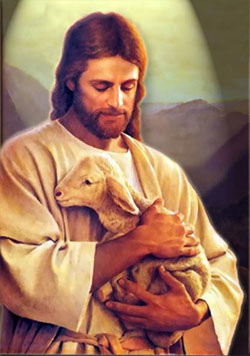  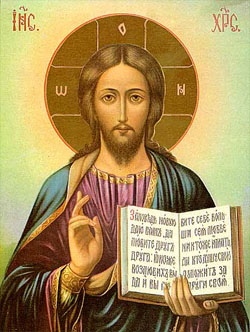
   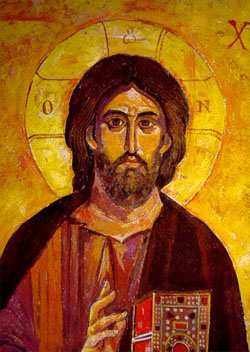
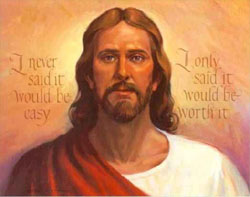   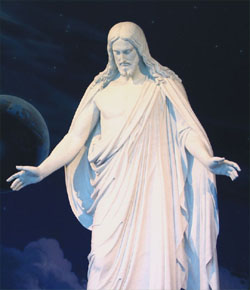 
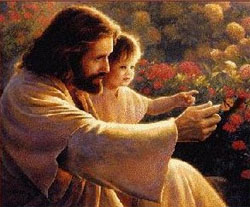 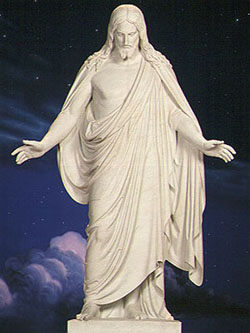   
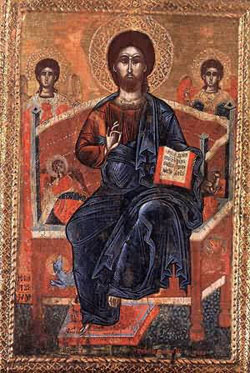 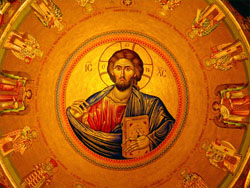 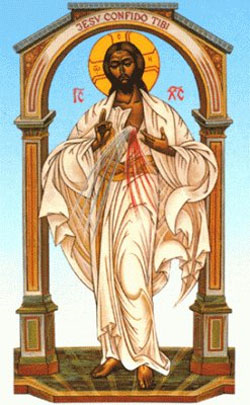 

|
| THE WORLDPEACE PEACE PAGE Copyright 1988-2018 by Dr John WorldPeace JD USA All rights reserved |